Don’t Buy an Oceanfront Property in Hawaii Until You Read This – Part 1
I’ve wanted to do an article on oceanfront property for a long time. What has kept me from doing so, however, is that the subject is too big. There’s too much information for a single blog post to cover it all. Because the thing is, it’s not just about ‘how do you find the best oceanfront land in Hawaii’; it’s about knowing the responsibilities of a homeowner with oceanfront property. It’s about knowing what you may have to disclose if you try to sell it. It’s about knowing some of the more esoteric things you may find yourself dealing with during the buying process. The whole beginning-to-end process of buying and owning oceanfront real estate in Hawaii just isn’t as simple as ‘look for a property to purchase that’s on the water and buy.’
So I’ve decided to try something new. Instead of doing a single broad article on the topic of oceanfront property, my next three articles will all tackle an aspect of that topic in depth. A deep dive, if you will, into oceanfront property in Hawaii. It is my hope that, by the end of the article trilogy, you’ll have enough information to make an informed decision about purchasing oceanfront land here in Hawaii.
So with that being said, let’s get this deep dive started. Here’s what you need to know about purchasing oceanfront property in Hawaii.
Hawaii Oceanfront Property is Not Always Available
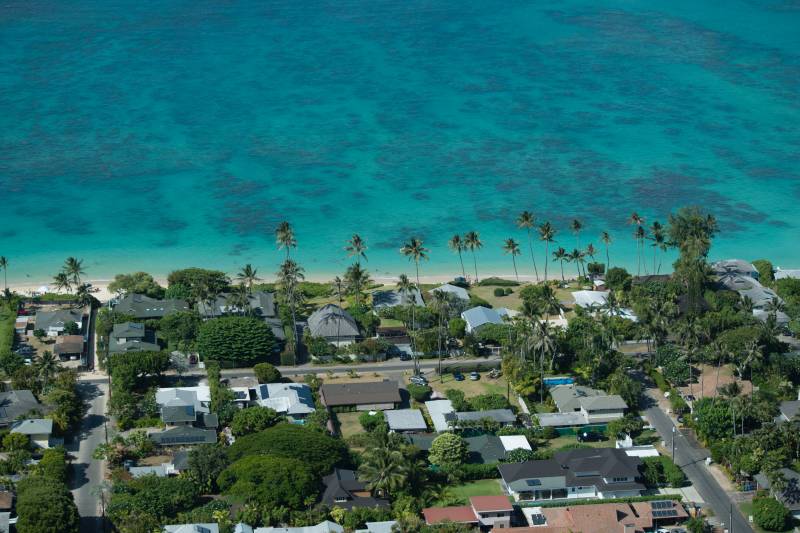
This is one of the points that surprises a lot of my clients; despite the fact that the big island of Hawaii is, in fact, both large and an island, oceanfront property is somewhat difficult to come by. There are several reasons for this, from a lot of coastal land being owned by large estates or ranches to sections being marked off for conservation. But the biggest reason is simply because those who own oceanfront property in Hawaii just don’t sell it off very often. A lot of investors purchase oceanfront property with the intent of generating income off said property, either by renting it out or simply letting it appreciate in value over a period of years. This translates into a market where there is an almost constant state of high demand and low supply.
So how does this affect you as a potential buyer? Be prepared to move quickly if a property you’re interested in comes onto the market. Expect to pay higher-than-average rates, and consider being aggressive in your offers because if the property is priced right and in good condition, it’s a cinch that you’re not the only one looking at that property, and that it won’t remain on the market for very long.
There’s a Difference Between Oceanfront and Beachfront Properties
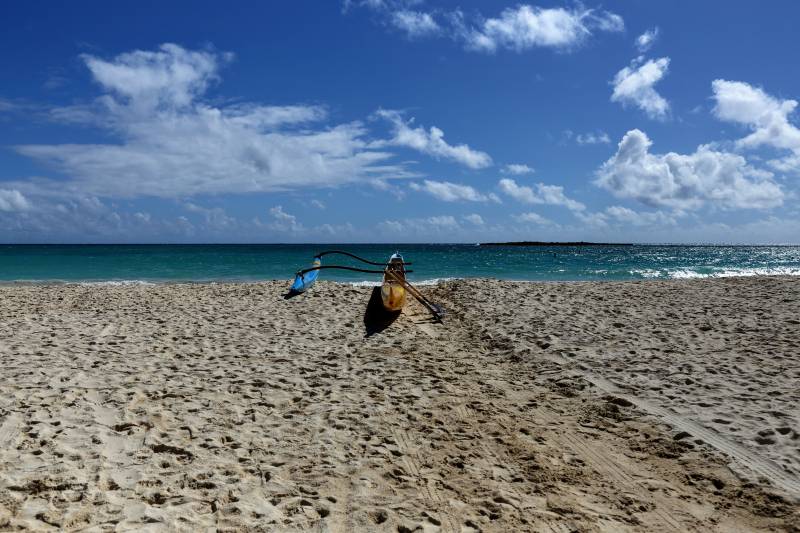
Most people aren’t actually aware of this, but there’s a very specific distinction between oceanfront and beachfront property in Hawaii. It’s not something often talked about, and to make matters worse, a lot of sellers will mistakenly use the terms interchangeably, leading to confusion and potential pitfalls down the line.
For the record: An oceanfront property is one that has immediate access to the beach, or is situated along the waterfront, and you can get down to the ocean fairly easily either on a walkway or just through the natural landscaping of the property. Beachfront property, on the other hand, can have several different meanings from ‘this property is near a beach’ to ‘there is beach access near to or adjacent to this property’ to even ‘this property has an ocean view but no beach access.’ There doesn’t seem to be a concrete definition, so if you’re purchasing beachfront property, do your due diligence and speak to your realtor to make sure you know exactly what you’re getting.
All Beaches in Hawaii are Public Beaches
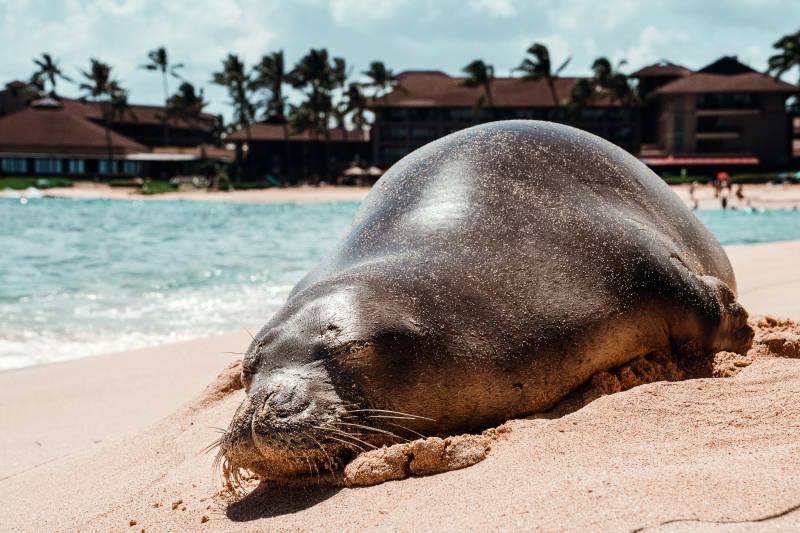
This is something that a lot of mainland buyers are unaware of when purchasing land in Hawaii: There’s no such thing as a private beach on the Islands. If you purchase oceanfront property, expect to share the beach with neighbors and tourists, and take that into account when you go looking at what property you want to buy. Chances are you don’t want to spend a few million dollars on a nice second home and then wake up one morning to discover you’re sharing your beach with a few dozen joggers.
There are ways to limit the chance of finding strangers wandering around your backyard, of course. Looking for houses in gated communities is one — because while all beaches must be accessible to the public, they don’t necessarily have to be EASILY accessible. You can also look for properties that are farther away from population centers like Hilo or Kona, or that are on beaches that are difficult to access. I have one friend, for instance, who lives on a beach that is only accessible to others via the King’s Trail, which is a public pathway that winds and bends over lava flows. It takes beach-goers a solid 45 minutes to hike down to the beach, which discourages all but the most dedicated beach-goer.
Some Sections of Oceanfront Property are in ‘Conservation’ Zones
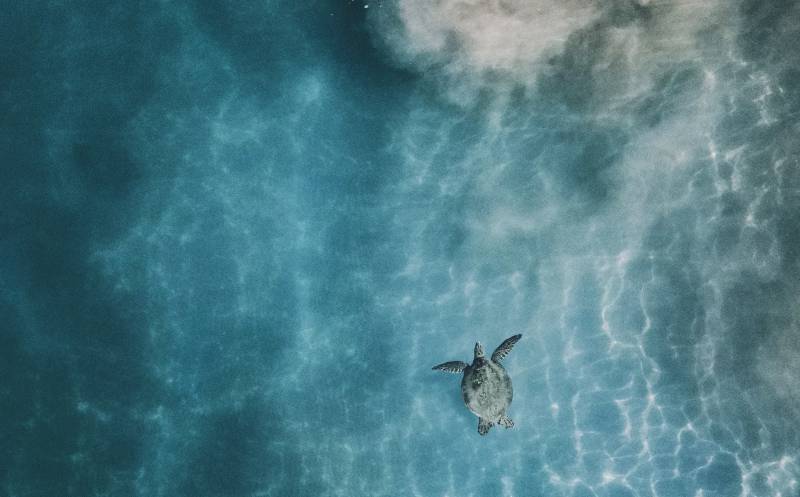
I’ll go into more detail about this stuff in a later article, but something you need to know if you’re purchasing oceanfront property is you may not be able to make certain improvements or alter the landscaping as much as you want if part of your property falls into a Conservation Zone. Because conservation is such a prevalent issue in Hawaii, some properties are dual-zoned, with the patch closest to the beach being a conservation zone in which building structures is prohibited and landscaping is highly regulated. This is going to be on a property by property basis, and a skilled realtor can really help navigate these waters.
Oceanfront Properties are Killer Investment Opportunities
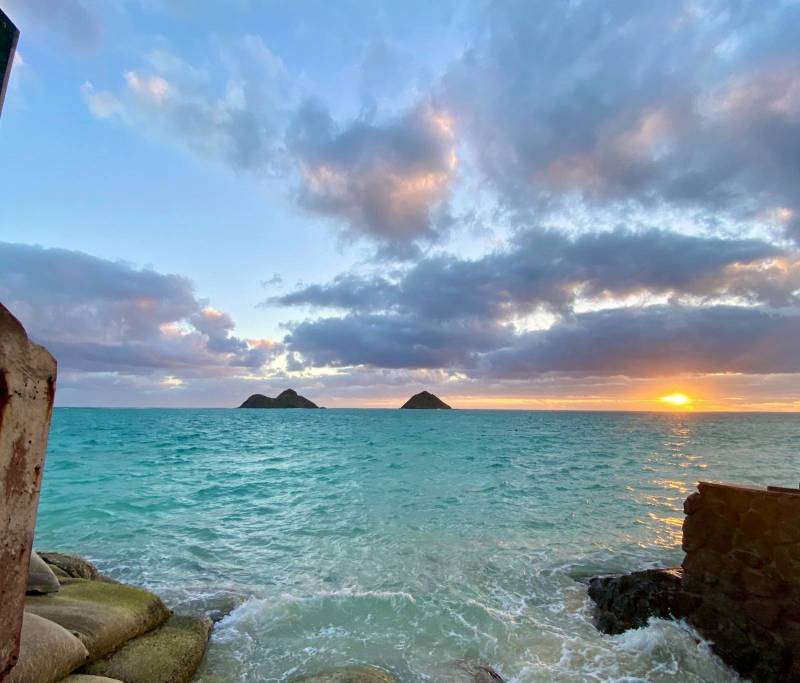
Whether you’re planning on living there for a time and then selling it for a profit, or are planning on renting it out, oceanfront properties are moneymakers. An almost universal law of real estate investing is that location can make or break your investment. In Hawaii there’s nothing better than oceanfront property. It nearly always increases in value over time, they are the premier rental properties on the island, and there is almost always someone looking to purchase when you’re ready to sell. As stated before, oceanfront properties don’t come on the market with great frequency, so when one finally does pop up, there are typically plenty of interested parties who will jump on it as fast as they can.
There’s More to Come
This is only the first of three blog posts I plan to do on oceanfront property in Hawaii. Next time, I’ll dive into the unique circumstances owners of oceanfront property may find themselves in and need to know about. This includes things like shoreline access rights, encroaching vegetation maintenance rules, and how erosion on the beaches in front of your home might affect what you need to disclose if you plan on selling your property.
Want to Know More?
Whether you are new to real estate or you’ve been doing this for a long time, Hawaii is different than most other states. Getting help from an industry expert is really the best way to go. If you ever have a specific real estate question, just send me a quick email, call, or text. I love talking about real estate, and in particular the topic of real estate investing. I’m happy to help, no strings attached.
Don’t miss out; join my email list, and I’ll send my helpful Hawaii real estate blogs directly to you!
Click here to join my email list
Read More of My Blogs
Fee Simple vs. Leasehold Investment Properties in Hawaii
Beware of Ohanas on Investment Properties in Hawaii
Don’t Buy A Vacation Rental In Hawaii Until You Read This
Is Now a Good Time to Buy an Investment Property in Hawaii?
Should I Buy A Vacation Rental Or Long-Term Rental In Hawaii?




Beth Thoma Robinson, R(B)
April 23, 2021
Hi Tom, thanks for writing about oceanfront property. One of the big confusions about “oceanfront property” in some parts of the Big Island is that the oceanfront is cliff, not beach. So I am not sure I agree with “An oceanfront property is one that has immediate access to the beach, or is situated along the waterfront, and you can get down to the ocean fairly easily either on a walkway or just through the natural landscaping of the property.”
Beth Thoma Robinson, R(B)
April 23, 2021
And I also should mention that while not all oceanfront property is County ZONED conservation, all oceanfront property will be designated conservation by State land use, and Special Management Area and CMZ regulations apply
Dixi Applegate
April 29, 2021
Tom,
This is a very useful and well-written article. I appreciated the knowledge I obtained from it and look forward to seeing your next post. I also read Beth’s comments. I’m sure she is also quite knowledgeable in this arena and I appreciate this information equally. I think realizing that not all parts are created equal when given the broad spectrum of the term “oceanfront property” and it depends on where you are on the island. It still gives Buyer a good perspective and useful information (from both of you). I also know that things can change over time and not all that is cast in stone today; may be the same down the road tomorrow. I’ve seen far too many of those instances.
Still, I’m glad I read both (your post and Beth’s comments) as I’m sure others will; as their is still incredibly useful information here. Thank you and look forward to the next post.
Dixi
Kerry Miller
May 18, 2021
Curious how sea-level rise will impact ocean front properties in the near future? Personally we are staying away from anything close to the water because I believe in the next 25-50 years many of these homes will be flooded.
Yucatan Beach Homes
February 6, 2022
Hello, I Liked your informative blog about Real Estate services! Thanks once again and best of luck.
Darrell Kennedy
December 16, 2023
Interested in knowing more or as much as I can about oceanfront properties on Ohau.